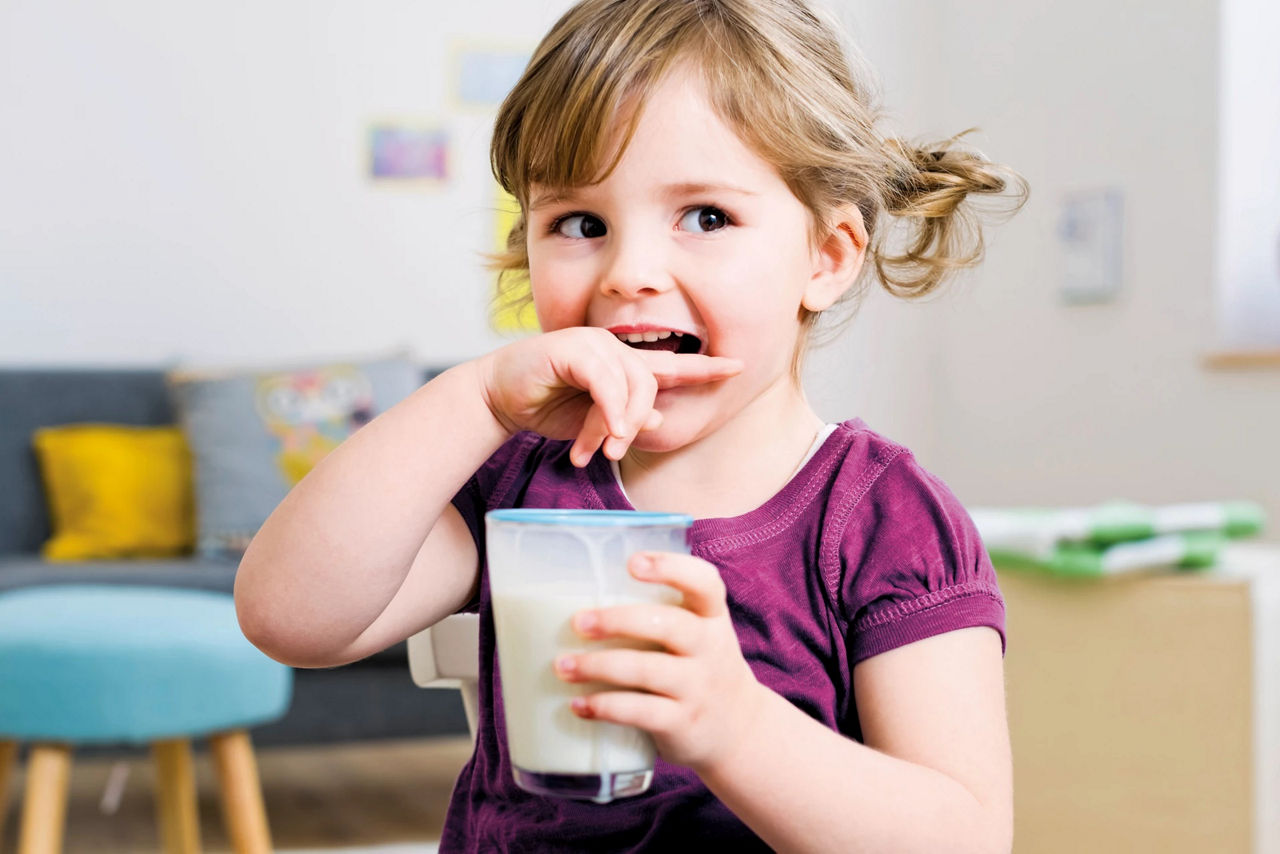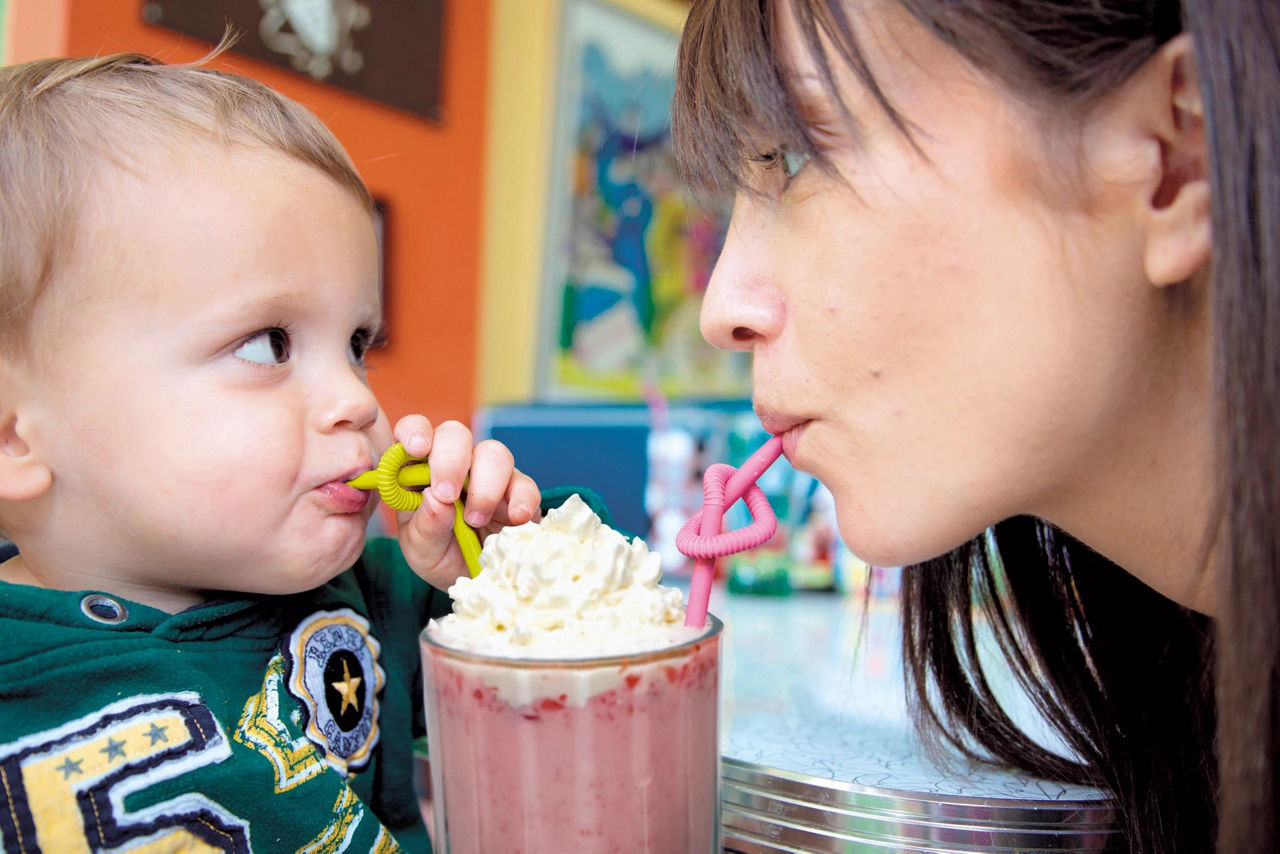Free weaning plan - Register here
Your toddler’s development
As your baby advances from infant to toddler, this is a period of intense physical and mental development, as your toddler’s brain gets ready for the challenge of more developed walking and talking. So to ensure the healthiest growth and development for them, a balanced diet is essential.
Why your toddler’s diet is different from yours
A balanced diet for a toddler is very different from ours (see our diagram below). Their nutritional needs differ, and these differences need to be taken account of when planning your toddler’s meals:
Sugar and salt - Toddlers should have less than 2g of salt per day – that’s about 1/3rd of an adult's maximum daily allowance. That’s why it’s so important not to add salt to any food for your toddler you prepare yourself. Some adult foods are not suitable for toddlers because they’re too high in salt or sugar. Did you know that 2 average digestive biscuits contain 1/5th of your toddler's daily maximum salt allowance? Foods that contain natural sugar like fruit, vegetables, and milk are fine, but avoid foods that contain added sugar.
Portion sizes - Your toddler's tummy is also around 5 times smaller than yours. That's why they need to eat small amounts of energy and nutrient rich foods frequently throughout the day. To get the right balance of energy and nutrients, your toddler should have three small balanced meals a day with regular nutritious snacks in-between.
Energy and nutrient needs - Toddlers are not mini-adults, they need a diet relatively high in fat and low in fibre. Although fibre is a good thing, it's very filling and so too much of it may mean your toddler doesn't get all the energy and nutrients they need. Different foods have different nutrients so ensuring your toddler eats a wide variety of food is important to give them a balanced diet, for their healthy growth and development.

So what is a ‘balanced’ toddler diet?
A balanced diet for a toddler is made up of a combination of the following:
Starchy foods
Examples include bread, rice, cereals and potatoes. Starchy foods should be offered at every meal and can be offered as a snack too.
Fruit and vegetables
Try and offer a range of different coloured fruit and vegetables as they all contain different nutrients. Try to include some at each meal and offer them as snacks, but remember children model their behaviour from others, so make sure you include these foods in the whole family's diet too.
Milk, cheese and yogurt
Milk should be part of your toddler’s diet every day but be sure to include other calcium-rich dairy food too. Your toddler should be having three portions of dairy food per day, which can include snacks.
Meat, fish and alternatives
Examples include chicken, salmon, eggs and pulses. This food group provides your toddler with the protein they need. They should have two servings and vegetarians should have three servings a day. Meat and pulses are also good sources of iron. Iron is essential for your toddler as it plays an important role in brain development.
Oily fish such as salmon contain Omega 3 fatty acids. These fats can be beneficial for brain and eye development.
Foods high in fat and sugar
Examples of foods high in fat and sugar are oils, butter, cakes and biscuits. Although fats and sugars are an energy source for your toddler, they only contain very small amounts of vitamins and minerals and should therefore be limited.
Food safety and foods to avoid
Some foods need extra attention when preparing them, whereas others are best avoided, full stop.
- Salt should be avoided; keep it to a minimum when cooking and instead use herbs and spices to season. Remember to check the salt content in pre-prepared food, too.
- Artificial flavourings, colourings, preservatives and sweeteners should be avoided. These are not allowed to be added to manufactured baby and toddler foods but can be present in some adult foods such as diet drinks and juices. Certain additives have been linked to behavioural problems in children so if you feed you toddler adult foods then make sure you check the label.
- Eggs and shellfish can cause food poisoning if not cooked properly, so always make sure they’re well cooked.
- Nuts are an excellent source of some nutrients however if there is family history of allergy it's best to avoid them until after 3 years. Whole or chopped nuts should be avoided until 5 years as they are a choking hazard. However, ground nuts/peanut butter are fine.

Join our baby club
Ready to stop worrying about what other people think and do what feels right to you? We’ll give you the support you need to follow your instincts and enjoy parenthood to the max:
Helpful emails
Non-judgemental support
Free weaning plan
Tips from real parents
More from toddler
Toddler topics
Need free advice with a smile? Get in touch with our dedicated Care team.
Ask us a question (8am - 8pm Monday to Friday, 10am - 4pm Weekends)
Messenger
Contact us on Facebook (10am - 10pm, 7 days a week)
Call us
Call us on 0800 977 8880 (8am - 8pm Monday to Friday)
FAQs
Get answers to your most frequently asked questions




